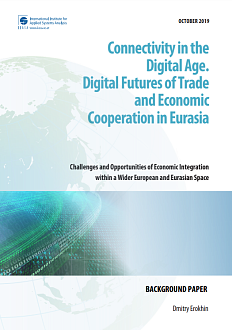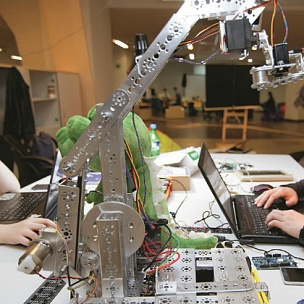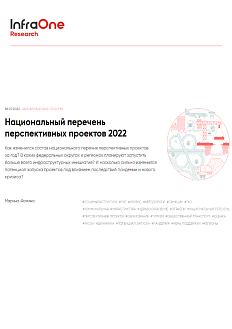The publication is based on HSE material: «Viral Revolution: How the Pandemic Will Change Our World»
In an op-ed for RBK, HSE Rector Yaroslav Kuzminov laid out his predictions about the changes that await us in the wake of the coronavirus pandemic: on-site office workers will be reduced by a third, retail business will go completely digital, and both healthcare and education will undergo a radical overhaul.
The world economy has experienced several global crises over the past 30 years, but not one of them has changed our lives so rapidly. The coronavirus pandemic is breaking down transport and production chains at an incredible speed, forcing states to reinforce borders and rebuild key public institutions, and universities have had to swiftly transition to distance learning. All this does not constitute a step into the abyss, however, but rather a path to a new reality—one that is based on technological revolution and the innovations of Industry 4.0. Nonetheless, the road ahead will not be easy.
Cost Reduction and the End of the Office Plankton
Thousands of companies around the world are moving their employees to remote work. The expansion of work beyond the confines of the office, which has been a topic of discussion over the past few years, has in a short time become a reality for millions of workers across the world. This forced global experiment will likely be successful, which will inevitably lead to a radical reformatting of the labour market and, consequently, the emergence of new social challenges.
The main effect of reducing the number of employees in an office is the reduction of costs. It will be possible for companies to decrease rental costs, reduce staff (such as secretaries, security guards, and drivers), as well as move from hierarchical structures to cloud-type structures. Business organization and large organizations in general will be simplified, and companies will enjoy substantial savings on the internal organizational costs that go towards employee oversight. The time employees arrive to the office, the amount of time they take for their lunch break, or whether they abide by company dresscode become less important. Only the results of their labour will be monitored.
Concepts such as the work week or the work day will become things of the past. After all, if it is possible to transition to a new conception of labour in which the product is what is important, then the time spent on its production or where it was produced are no longer of any interest. In addition, this change represents a huge opportunity for parents with young children. Having and raising a child will cease to be a cause for disrupting one’s career.
A number of countries will immediately have to grapple with the question of what to do with workers who are no longer in demand. It is possible that even the Russian economy, which has previously avoided substantial unemployment, will face this problem. But the quality of unemployment will also change. Until now, it was believed that if you are educated, smart, and want to work, you will be able to get a job—and that if you are unemployed in a big city, it is by choice.
In the new reality, everything will be tougher. There will be losers who are not bad workers, but who slightly lack a competitive edge over their professional peers. This outcome will be very similar to the unemployment of industrial workers in the first half of the twentieth century, when job loss was perceived as a social challenge. And this time it will be perceived in the same way. It’s one thing when a person voluntarily chooses not to look for work, but another entirely when the narrowed demand for workers itself hampers their chances.
Business without the Rent
In Guangzhou a couple of years ago, I was struck by how empty the stores were. Only a couple of customers wandered the huge floor of one store, and they were obviously foreigners. My Chinese colleagues explained that they had been buying everything online for a long time by then. Russian and even European stores have resisted this trend for longer.
The crisis will lead to obvious changes in retail. Compare the prices of electronics (or anything) offered by online sellers versus those in retail stores—the prices you find online are 20-50% lower.
E-commerce will ultimately replace traditional commerce, leaving only small niches intact, such as expensive boutiques or supermarkets. At the same time, however, the delivery industry will grow sharply, and it will become more convenient and efficient. People will not be willing to spend time waiting hours for their orders. Digital sizing and fitting systems for clothing and shoes are being fine-tuned, and if, today, retail chains resist the detailed labelling of their goods, tomorrow they will embrace such labelling as an advantage over less reliable sellers.
Cities can expect a drop in demand for office and retail space; these real-estate markets will shrink by 25% and 50%, respectively. Malls will become centres for family entertainment, food courts, and co-working. They will continue to house showrooms where you can see products and devices up close. But consumers will not leave these showrooms with their purchases in hand. Co-working areas in shopping centres and stores will be especially in demand in residential areas, since not all who work from home can afford to have a separate room to use as a home office.
Even with the costs required to develop and maintain a delivery service, the money companies will save on retail space and onsite employee hires will reduce their expenses by 20-30%. Whether this will increase businesses’ profits or translate into lower product prices for consumers will be decided in major retailers’ struggle to survive. An advantage of brand-name companies over less established ones will be reputation, guarantees, and prompt service. For durable goods, it will be their life cycle contracts. In other words, not the purchase and delivery of the TV, but getting it set up, using it without any problems for 5-7 years, and updating the model when needed. In this case, the question of who owns the TV is not so important.
In my opinion, large retail chains will not only survive but thrive.
Rebooting the State
Tectonic shifts in the labour market can lead to a completely different social structure. It is possible they can lead even to new social struggles similar to the struggle for socialism of the first half of the twentieth century.
An alternative could be a softer, European model of work distribution. In fact, we could see the implementation of a guaranteed income model in which, on the one hand, you do not work but you still receive a decent income, and, on the other hand, unemployment is distributed amongst members of society by restricting work hours (for example, to four days a week). But such a change will be ineffective in the long run. When you have people working remotely, the line between work time and personal time is conditional, and the employer will hire only those who are productive.
A big reboot is in store. Today we view the state as a kind of regulator of what we are doing. Or we view it as something not very necessary. In the second case, a kind of spontaneous liberalism manifests itself, which has developed in our societies. We observe a neglect of the state in places like Europe, and Russia, and the United States.
If the economic crisis caused by the coronavirus pandemic lasts more than a year, policies of sustainability rather than growth will become more important in the public consciousness. The state will be looked to first and foremost as a guarantor, a mechanism for ensuring stability. This increased value of the state will be accompanied by a higher willingness among citizens to obey it and relinquish some of their rights in the time of crisis.
The biggest result of the current crisis will be the emergence of the conception of the state as a stabilizer. Policies will be aimed not at growth but at sustainability, not at change but at maintaining predictable living conditions for people who themselves will continue to set goals. Growth will be a concern for individuals, but the common goal will be sustainability.
New Medicine and a New Morality
The coronavirus pandemic has demonstrated humanity’s readiness for solidarity. Nations and governments made an important choice between economic growth, income, and the preservation of the lives of their senior citizens. This choice is no less historically important than when a pension system and public healthcare system were created in the first half of the last century.
The value of a person is absolute; it is not limited to human capital — that is, one’s ability to work and generate income for one’s family, employer, and state. These words materialized in mass behaviour; they became an economic fact of the beginning of 2020. For the first time in history, the world can be proud of the decline in GDP. Let’s hope that in a few months this initial cause for this pride will disappear.
Nevertheless, there will be a serious push for healthcare systems to change. If today in developed countries the question of healthcare is largely a private matter where you buy insurance depending on your income, the pandemic is likely to lay the foundation for an expansion in public responsibility for the life and health of citizens. Moreover, the digital revolution provides fairly affordable solutions in this area. Early diagnosis and remote monitoring of chronically ill patients — the projection of the ‘Internet of things’ onto the ‘Internet of the body’, free or discounted provision of medications, and so on — all this ultimately can change the ratio of medical insurance to state-provided health coverage in favour of the latter.
Global University, Distributed University
The field of education, which has been at the forefront of the global crisis transformation, is witnessing incredible changes. Within practically a few days, face-to-face education came to a halt, but universities and primary schools either continued to operate online or are currently making arrangements to do so.
In fact, these changes have been in the works for almost a decade. Platforms for MOOCs (massive open online courses) are growing rapidly. Students of MOOCs are already comparable in number to on-site university students. No matter where you are, you can take courses at Harvard, Yale, the London School of Economics, and Moscow State University. In advanced universities around the world (as well as Russia), curricula include hundreds of online courses that are mainly taught by professors of other universities. Digital platforms are being developed in schools that offer many options for lessons and independent work.
Despite their efficacy, these new methods were rejected or ignored by traditionalists from the start, and traditionalists enjoy a majority in the sphere of education. Working in conditions of a crisis and forced isolation will force literally everyone to master modern educational technology in practice. When the crisis is over, education will not return to the way it was.
The crisis will hasten the abandonment of obviously obsolete forms of teaching. First and foremost, this means lectures, an educational form that has not changed since the 16th and 17th centuries. Before the crisis, an average of 15% of students attended lectures. Today it is already clear that an online course provides a much more dynamic learning format than a standard lecture. It has more built-in controls, and the development of the material is more sustainable.
Online technology will allow students of academic programmes not only to enrol in courses offered by top-ranking universities, but to also have these courses reflected on their transcripts.
Completed online courses may become constitutive of a kind of microdegree that a graduate can indicate on their resume, along with their undergraduate or graduate degree that may be from a university of lesser prestige. This will create an additional indicator in the labour market that will affect the way in which job applicants are evaluated and selected.
A further educational development will be the appearance of a kind of composite degree. Students will independently choose online courses for themselves and find a university or college that recognizes these courses for credit and confers bachelor’s and master’s degrees based on them. The sphere of mass high education will see the emergence of university-integrators.
But neither universities nor primary schools will become irrelevant. Humans are social beings, and the quality of education directly depends on the quality of the educational environment, which cannot all be virtual. There will be coworking and laboratories instead of lecture halls and classrooms, and a significant increase in the extracurricular and athletic spheres of educational institutions. In the coming decades, humanity will invest in the construction of new campuses.
New technologies will make education less formal and more distributed. IT giants will join the production of educational content. In Russia, companies such as 1C, the Mail.ru Group, Sberbank, and Yandex are actively investing in this area. Educational products will lose their official status, and digital interactive systems will take the place of traditional textbooks. A new educational environment will appear where the difference between primary and secondary education will disappear. As a result, when this crisis does end, the world around us will be forever changed.
For more information on the current epidemiological situation, please see the special section of the Roscongress information and analytical system about the response to the coronavirus outbreak.






